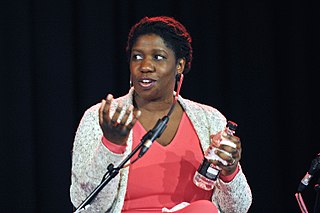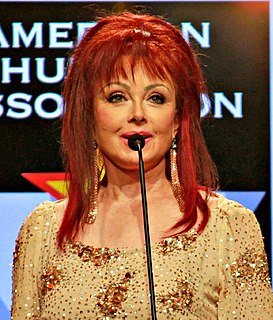A Quote by Daniel Dennett
I am confident that those who believe in belief are wrong. That is, we no more need to preserve the myth of God in order to preserve a just and stable society than we needed to cling to the Gold Standard to keep our currency sound. It was a useful crutch, but we've outgrown it. Denmark, according to a recent study, is the sanest, healthiest, happiest, most crime-free nation in the world, and by and large the Danes simply ignore the God issue. We should certainly hope that those who believe in belief are wrong, because belief is waning fast, and the props are beginning to buckle.
Quote Topics
According
Am
Because
Beginning
Belief
Believe
Certainly
Cling
Confident
Crime
Crutch
Currency
Denmark
Fast
Free
God
Gold
Gold Standard
Happiest
Hope
Ignore
Issue
Just
Keep
Large
More
Most
Myth
Nation
Need
Needed
Order
Our
Preserve
Props
Recent
Should
Simply
Society
Sound
Stable
Standard
Study
Than
Those
Useful
World
Wrong
Related Quotes
Religion becomes a matter of belief, and belief acts as a limitation on the mind; and the mind then is never free. But it is only in freedom that you can find out what is true, what is God, not through any belief; because your belief projects what you think God ought to be, what you think ought to be true. If you believe God is love, God is good, God is this or that, your very belief prevents you from understanding what is God, what is true.
I shall not convert you at the end of my argument. I think the argument is sound. I hold that belief in God is not merely as reasonable as other belief, or even a little or infinitely more probably true than other belief; I hold rather that unless you believe in God you can logically believe in nothing else.
As belief shrinks from the world, it is more necessary than ever that someone believe. Wild-eyed men in caves. Nuns in black. Monks who do not speak. We are left to believe. Fools, children. Those who have abandoned belief must still believe in us. They are sure they are right not to believe but they know belief must not fade completely. Hell is when no one believes.
We in the United States, above all, must remember that lesson, for we were founded as a nation of openness to people of all beliefs. And so we must remain. Our very unity has been strengthened by our pluralism. We establish no religion in this country, we command no worship, we mandate no belief, nor will we ever. Church and state are, and must remain, separate. All are free to believe or not believe, all are free to practice a faith or not, and those who believe are free, and should be free, to speak of and act on their belief.
Obviously, if theism is a belief in a God and atheism is a lack of a belief in a God, no third position or middle ground is possible. A person can either believe or not believe in a God. Therefore, our previous definition of atheism has made an impossibility out of the common usage of agnosticism to mean "neither affirming nor denying a belief in God."
If there's one American belief I hold above all others, it's that those who would set themselves up in judgment on matters of what is "right" and what is "best" should be given no rest; that they should have to defend their behavior most stringently. ... As a nation, we've been through too many fights to preserve our rights of free thought to let them go just because some prude with a highlighter doesn't approve of them
Why does anyone do anything? Belief. A belief that they are right and just in their actions. Abraham was willing to sacrifice his son, Isaac, because he believed that God had commanded it. To kill your son is unthinkable. A crime. But if you are acting in the belief that your God, your supreme deity whom you must obey, has demanded it of you, is it still a crime?
The leap of faith is a strategic impasse that confronts every Christian in search of converts; and, as he sees the matter, there is no wrong way to become a Christian. It is the end that is importnat, not the means; it does not matter why you believe, so long as you believe. For the philosopher, in contrast, the paramount issue is the justification of belief, not the fact of belief itself.
I want atheism to be true and am made uneasy by the fact that some of the most intelligent and well-informed people I know are religious believers. It isn't just that I don't believe in God and, naturally, I hope that I'm right in my belief. It's that I hope there is no God! I don't want there to be a God; I don't want the universe to be like that.
Our society is not held together primarily by law and its enforcement but most importantly by those who voluntarily obey the unenforceable because of their internalized norms of righteous or correct behavior. Religious belief in right and wrong is a vital influence to produce such voluntary compliance by a large number of our citizens.








































